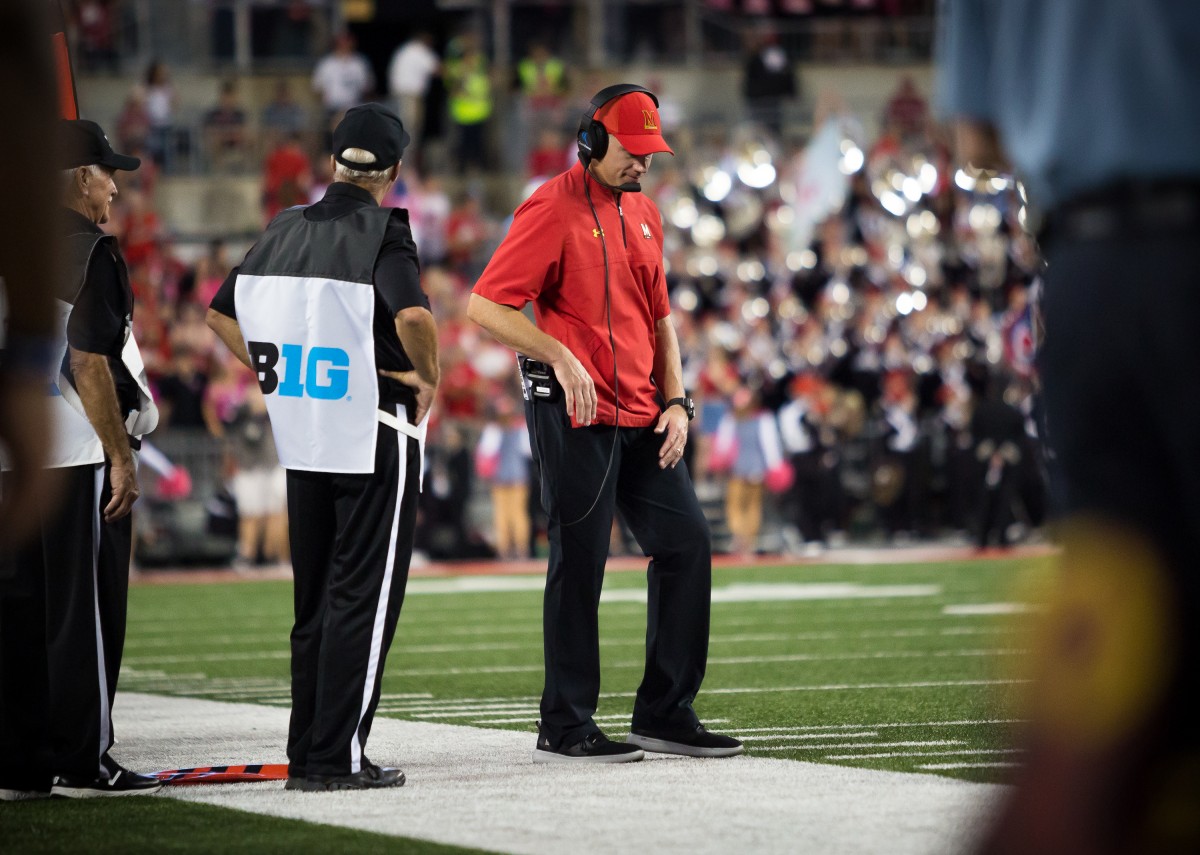For the Maryland football team to reach six wins and secure an automatic bowl berth this year despite one of the most difficult schedules in the country, it needed to win the games it was supposed to. That includes games like Saturday’s tilt against Rutgers, which entered 6-24 in Big Ten play since joining the conference.
But rather than taking advantage of their trip to Piscataway, New Jersey, during a year full of top-25 matchups, the Terps lost to the Scarlet Knights for the second time in four years, likely ending their hopes of making the postseason.
“This series has been crazy since I’ve been here,” senior linebacker Jermaine Carter said. “I just wish we could’ve come out on the winning side today.”
The 31-24 defeat continued a frustrating campaign marked by some positives, such as road wins over Texas and Minnesota, but more deflating blows, including four double-digit losses. Maryland has dropped four of its past five contests.
Quarterback Max Bortenschlager left the game in the fourth quarter with an apparent injury, adding to the Terps’ list of health setbacks. He was their third-string quarterback, having replaced Tyrrell Pigrome and Kasim Hill, who suffered ACL injuries earlier in the year.
Ryan Brand took over for Bortenschlager with Maryland down, 31-24, and led the Terps’ final drive. His pass to wide receiver Taivon Jacobs in the end zone with less than two minutes remaining was wiped out by a holding penalty. His incomplete pass to wide receiver DJ Moore on fourth-and-20 sealed the defeat.
Still, players were impressed with his ability to step in and go 8-for-12 for 68 yards.
“He came in and he executed,” running back Ty Johnson said. “It just shows how mature he is to come in and just navigate the offense.”
The Terps were plagued by careless mistakes throughout the game. They committed 10 penalties, and Bortenschlager threw a costly first-half interception that was returned for a touchdown.
Rutgers came in with one of the worst passing offenses in the nation, averaging just 130 yards per game through the air. So leading up the contest, defensive coordinator Andy Buh pointed to his rush defense as a key to stifling the Scarlet Knights’ attack.
Instead, Rutgers gained 239 yards on the ground, beginning with 52 rushing yards on its opening drive.
“We allowed them to play to their strengths,” Carter said. “When we would come out in one look to stop the run one way, they would … go the opposite way. They did a great job and we’ve just got to be better.”
Though Maryland’s offense achieved one of its most balanced performances of the year, with more than 160 yards on the ground and through the air, several unforced missteps, along with the injury to Bortenschlager, led to the loss.
With Maryland trailing, 10-7, midway through the second quarter, Bortenschlager rushed a throw to the right sideline, floating his pass toward a group of defenders. Rutgers defensive back Kiy Hester intercepted the attempt and returned it 52 yards for a score.
Maryland could have taken a double-digit advantage midway through the third quarter after touchdown runs from Harrison and Johnson when Bortenschlager lofted a pass to a wide-open Jacobs in the end zone. But Jacobs, who made seven catches for 97 yards, dropped the would-be score, forcing the Terps to settle for a field goal.
The Terps allowed two unanswered touchdowns in the fourth quarter, essentially eliminating them from postseason contention with daunting contests against Michigan, No. 24 Michigan State and No. 7 Penn State remaining.
“We just didn’t make enough plays to win the game,” coach DJ Durkin said, “and they did.”



